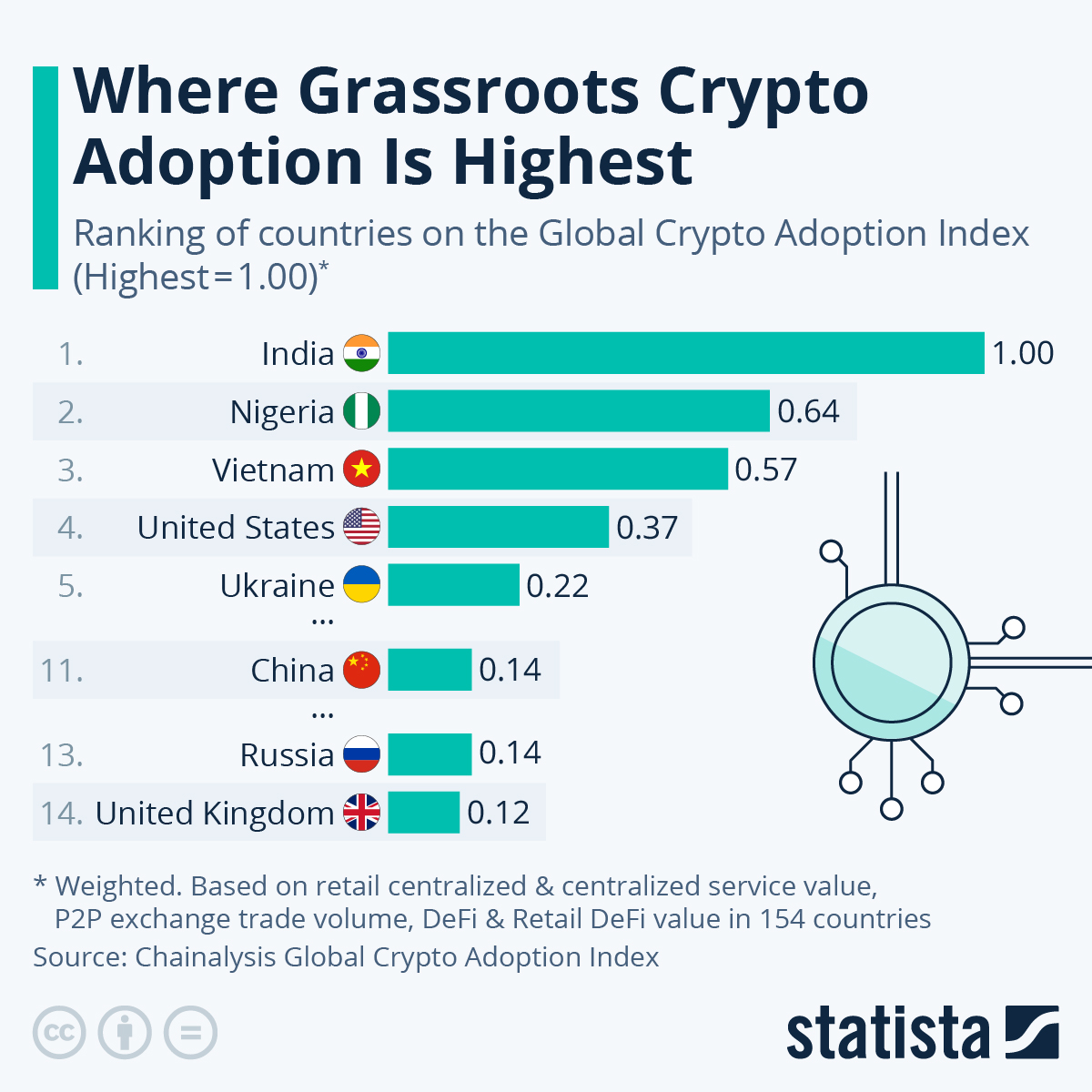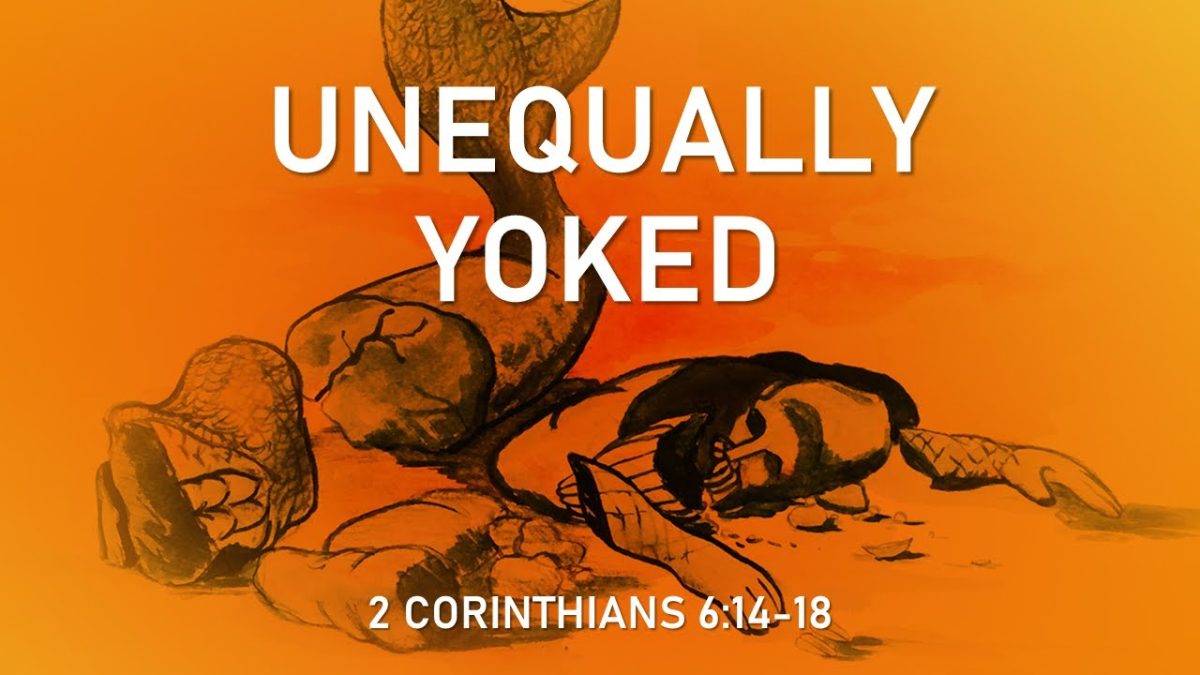
BanksterCrime:
Of 154 countries analyzed by blockchain data platform Chainalysis, India ranks the highest in grassroots crypto adoption by far.
While countries with higher purchasing power would naturally score better when looking at transaction volumes, according to Chainalysis experts, the index measures where "average, everyday people are embracing crypto the most."
However, this result has to be taken with a grain of salt and can't be seen as indicative of a rise in the importance of cryptocurrencies in general.
As Statista's Florian Zandt shows in the chart below, based on Chainalysis's Global Crypto Adoption Index, only three countries score higher than 0.5 out of 1.0.
You will find more infographics at Statista
Apart from India, residents of Nigeria and Vietnam are most likely to utilize cryptocurrencies, while the United States and Ukraine rank fourth and fifth with scores of 0.37 and 0.22, respectively.
Of the countries with the highest marks on the index, nine out of the top 20 are in Asia, three in Latin America and two in Africa.
The Chainalysis Crypto Adoption Index rates countries based on a variety of factors. It looks at trade values on centralized exchanges and services, peer-to-peer trade volume and DeFi protocol cryptocurrency and retail values. The results are all weighted by purchasing power parity per capita, transformed into sub-indices, the mean of which is then used to calculate a country's final rank and score.
This serves as anecdotal evidence to the claim that cryptocurrency is seen by many as a financial equalizer for the un- or underbanked in so-called developing countries, even though crypto scams, hacks and fraud are widespread and substantial improvements to the living conditions connected to crypto in the respective countries have yet to materialize in a measurable way.
What does indeed materialize is that crypto can effectively circumvent government restrictions. While China and Russia have each put out a ban on crypto payments and trading, the countries rank 11th and 13th, respectively, ahead of countries like the United Kingdom.

Revelation: A Blueprint for the Great Tribulation


A Watchman Is Awakened


Will Putin Fulfill Biblical Prophecy and Attack Israel?



Newsletter
Orphans

Editor's Bio












